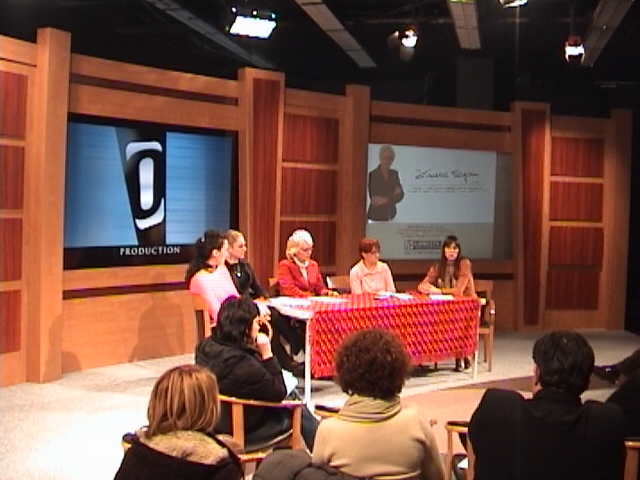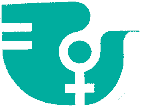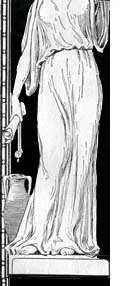



Forside
Adresser
Lenker
K-nytt
IAW
Historie
In English
Program
Lover
The Norwegian Association for Women's Rights
The Norwegian Association for Women's Rights (Norsk
Kvinnesaksforening, NKF) is dedicated to eliminating attitudes, laws and
regulations that are discriminatory towards women and which prevent women's
liberation and gender equality.
NOKS Statement on Trafficking for Sexual Exploitation
We the undersigned members of NOKS, Nordic and Baltic Women's Organizations in Cooperation, resolved at the Conference, Demand for Prostitution on April 28, 2006, in Tallinn, Estonia, to send a statement to the following:
Parliament of Finland
Parliament of Iceland
Parliament of Denmark
Parliament of Norway
Parliament of Estonia
Parliament of Latvia
Parliament of Lithuania
Nordic Council of Ministers
CC: Riga City Council
Whereas, we observe with increasing alarm the growth in trafficking of women and children for sexual exploitation, Whereas, trafficking is done mostly by international organized crime as one of its activities along with illegal drugs and weapons, Whereas, the demand for prostitution feeds trafficking and contributes to organized crime, Whereas, the sex industry blurs the link between trafficking and prostitution,
We therefore urge you to adopt in your respective countries legislation that targets demand. Experience in countries with either legalized or regulated prostitution shows that trafficking and sex tourism increase dramatically in those countries. On the other hand the law in Sweden which criminalizes the buying of sex since 1999 has resulted in significant reduction in trafficking of women and children from abroad and 80% of the Swedish public supports the law.
We urge the legislators in the respective countries to examine carefully the money links of sex industry with organized crime and to be aware of the money behind the lobbying that the sex industry conducts in their countries. Careful examination of this matter includes familiarization with the abundant literature and studies available on the demand for prostitution, pornography and erotic services which have a destructive effect on every society.
We want to remind the legislators in the above listed parliaments of the international treaties their institution has ratified such as The Protocol to Prevent, Suppress and Punish Trafficking in Persons, especially Women and Children, Supplementing the United National Convention against Transnational Organized Crime (also known as Palermo Protocol) and the Council of Europe Convention, which oblige them to combat trafficking in their countries. These international documents include the requirement to address demand. Studies show that 80% of all trafficking is for the purpose of sexual exploitation. It is beyond doubt that a direct link between trafficking and prostitution exists.
In the final analysis we have to ask ourselves what kind of society we want to live in? Do we want a society where women and children are sexually exploited, criminal organizations thrive, and civilized values are destroyed? Or do we want to preserve the human rights and the dignity of every member of our society, not live in fear of crime, and pass on to the next generation the constructive and ethical values which have sustained us for centuries?
Respectfully yours,
Women's Council in Denmark
Estonian Women's Associations Round Table
The Coalition of Finnish Women's Associations - NYTKIS
The Union of Faeroe Islands' Women
Icelandic Women's Rights Association (KRFI)
Women's Network of NGO's in Latvia
Women's Issues Information Centre, Lithuania
Norwegian Association for Women`s Rights / Norsk Kvinnesaksforening Women's
Front of Norway / Kvinnefronten i Norge
Swedish Women's Lobby
To the Top
Amnesty International Price for Ljiljana Raicevic
THE GINETTA SAGAN FUND OF AMNESTY INTERNATIONAL USA AWARDS $10,000 TO MONTENEGRO ACTIVIST CRUSADING THE END OF HUMAN TRAFFICKING AND CRIMES AGAINST WOMEN LJILJANA RAICEVIC
(San Francisco)- Committed to improving living conditions for all in Montenegro, Ljiljana Raicevic began her prestigious career as a union president for healthcare workers. Since 1996, Raicevic has been dedicated to changing perceptions about domestic violence and providing a safe haven for women and children, in addition to becoming an advocate for the end of human trafficking.
Raicevic was responsible for the creation of the SOS LINE, the first NGO to serve women in Montenegro. In a strict patriarchal society with few resources for women in abusive relationships and a belief by the government that such matters were private, the SOS LINE provided women with counseling and resources not available anywhere else. By 1999, Raicevic realized that the women calling the SOS LINE needed more than a phone conversation, the women needed a safe place to stay, medical and psychological attention and legal services. Thus, pushing Raicevic to establish the first shelter for victims of family violence, WOMENS SAFE HOUSE.
Continuing her work for the safety of women and children, Raicevic is responsible for beginning public conversation in Montenegro about human trafficking. Amnesty International describes trafficking as a global phenomenon where victims are sexually exploited, forced into labor and subjected to abuse. Raicevic has created a shelter specifically for the needs of these women and helped to establish a comprehensive victim protection program. She has also worked extensively to ensure that political officials accused of supporting trafficking were removed from office.

Press conference in Women's Safe House, Montenegro, March 8th.
IAW Action Programme from 2007:
Proposal for the Chapter on Violence
Report from Norway to the IAW Congress
2002
by Siri Hangeland
| NKF goals - What do we want? | Norway - a paradise for women? | History - an unbroken tradition |

The sunflower symbol
We are members
of the International Alliance of
Women (IAW), an NGO
fighting for women's rights, and of Fokus,
a Norwegian umbrella organization with a global and pluralist perspective.
Leader is Berit
Kvæven. E-mail adresses see: post@kvinnesak.no
and adresser
NKF has local branches in Bergen,
Oslo, Drammen
og Fredrikstad.
 |
OUR GOALS ARE: |
• to enhance the possibilities for women's
participation in politics.
• to fight for equal pay and equal opportunities in employment and career
evelopment.
• to secure more media attention for women, thus making visible their
active participation in society.
• to obtain greater emphasis on preventing sexualized violence, prostitution
and pornography.
• to integrate a women's perspective in all international contexts.
• to ensure that women and men have equal rights and opportunities with
regard to obtaining schooling, higher education and work.
To the Top
NORWAY - A PARADISE FOR WOMEN?
Plus:
Norway, like the other Nordic countries, is a democracy with strong egalitarian
traditions. Gender equality is an aim both for the government and for
the political parties. There are government agencies furthering equality
on both state and local levels. • In comparison to most countries, women
are well represented in politics. 36% of the representatives in the National
Assembley (Stortinget - 01) are women. Women have 42% of government cabinet
posts. • Almost as many women as men are employed. Women have extensive
welfare rights in connection with pregnancy and maternity. • Schools and
higher education are equally open to both genders. At the universities,
59% of the graduates are now women.
Minus:
• Norway has one of the most rigidly gender segregated labour markets
in the OECD region. While men choose among a wide range of jobs, most
women are found in a much narrower segment of the labour market.
• Only 55% of working women are fully employed.
• Overall, women's wages are only 67% of men's. Even women working full
time are paid less for exactly the same kind of job.
• Even though most women are employed outside the home, they still have
most of the housework and childcare duties. Most men spend less than 5
hours a week doing housework.
• Only 7% of the top leaders in private businesses are women. In academic
work, in spite of the very high percentage of women students and graduates,
only 12% of the professors are women.
• While women have 34% of the representatives in local government, only
15% of mayors are women.
• Prostitution, pornography and violence seem to be permanent, shameful
blemishes on society. Every year, between 8000 and 9000 women are raped.
More than 50.000 women contact shelters for battered women. 2500 women
have to seek refuge in such a shelter, and about 1000 women are permanently
on the run from violent men.
Most Norwegian women rightly feel they have come far in achieving equality between men and women. However, much still remains to be done. NKF exists to continue the good work.
NKF HISTORY:
AN UNBROKEN TRADITION
The Norwegian Association for Women's Rights (Norsk Kvinnesaksforening, NKF) is the oldest Norwegian interest organization for women. It has an unbroken tradition, dating back to 1884. In 1904, NKF was one of the founders of the International Alliance of Women. Norwegian women won the right to vote very early (1913). After this victory, NKF continued working for women's rights in the labour market, in politics and within the family. In this way it survived the "doldrums" of the twenties and early thirties. In 1936, the Association reemerged as a modern, feminist organization. Women's right to employment and their participation in the labour market were seen as the key factor to reaching full equality between men and women. This policy was continued after World War II, when NKF formed a small, but unrelenting opposition to traditional gender politics and ideology. During the great, new feminist movement of the seventies, NKF was overshadowed by new organisations, but continued its work, lending continuity and experience to women's efforts, while continuing to focus on equal rights as the most important objective.
INTERNATIONAL ALLIANCE OF WOMEN ALLIANCE INTERNATIONALE DES FEMMES
ACTION PROGRAMME FROM 2007 PROPOSAL FOR THE CHAPTER VIOLENCE
The IAW strongly urges the elaboration of an International Convention on the Elimination of Violence against Women and Children on the basis of the Vienna Declaration and Programme of Action (World Conference on Hunan Rights 1993). The IAW identifies the major issues to be dealt with in the current triennium:
a) Violence in intimate relationships
Should not be seen as a private family matter, but as a crime, which is
not tolerated by society and government. Unequal status between women
and men in the society is the reason for men's violence against women.
Violence encompasses physical, mental and/or sexual abuse, female genital mutilation and other traditional practices harmful to women. Violence against women lead to reduced freedom of movement, loss of income, in addition to illness, invalidisation and death.
IAW therefore urges its member organisations to work for
- adopt measures to condemn all forms of violence against women and girls
- prevent female genital mutilation
- implement measures to ascertain the extent of all forms of men's violence
against women
- encourage programmes to teach men non-violent behaviour
- encourage that the woman should keep the home while the violent man
has to move out
- give violence alarm for women and give restriction order to violent
men
- mandate the establishment and funding of shelters, safe houses and crisis
centres for women and girls
- work for the enforcement of existing laws and the adoption of new legal
instruments to protect women against violence and to punish violent men
b) Violence in General /in the Society
IAW urges its member organisations to work for
- use the mass media to focus on all forms of violence against women and
girls, and ensure that rape is called violence and not sex
- educate the police, legal system, media, teachers, social workers about
gender aspects of violence against women - fight against all normalisation
of prostitution and pornography
- lobby for all child pornography to be banned
- give women alternatives to prostitution
- increased awareness of hidden crime of violence against women by national/local
authorities
- take appropriate measures to protect the girl child and her rights
- hire coordinators in the violence field in every police district
- increase research into all aspects of gender violence
- ensure that the authorities make gender segregated and comparable statistics
in all fields where women are exposed to violence
c) International
IAW urges its member organisations to work for
- observe the 1993 Declaration on the Elimination of violence against
Women (UN resolution A/48/104) and work with the Special Rapporteur on
Violence against Women and the Special Rapporteur on trafficking
- ensure the protection of women and children in times of war and conflict
- promote the adoption of legal instruments whereby the perpetrators of
international sex tourism can be punished in both the country of their
residence and the country in which the crime is carried out
- give trafficked women permanent legal residence and treat them as victims
of crime
- penalise the purchase of sex to fight prostitution, international sex
tourism and trafficking
- work for ethical guidelines for employees in private and official sectors
- to fight against the patriarchal power structure where women are subordinate
- fight against all forms of violence against women
To the Top
Report from Norway to the IAW congress in Colombo 2002
by Siri Hangeland, President of the Norwegian Association for Women's
Rights
Politics
In my country there are 42% women in the government, 37 % in the parliament.
Since 1986, every government have had more than 40% women. The fertility
rate has increased to 1,85, while in EU 1,45. Paid paternal leave is 1
year, whereof 4 weeks are reserved for men. These figures are very good.
We have also lots of other nice figures, due to hard pressure from the
womens organisations, but I must tell you that
Violence against women
is a very big problem in Norway as in the rest of the World. The most
dangerous place for a woman is at home.
In Norway we have now about 50 shelters for women spread over the country.
The law forbids the man to come to their home after abusing the wife.
The police, even without her request, can deny the abuser to visit the
wife/woman and to take any contact, even to send her SMS messages. And:
women that are threatened by their ex can get an alarm directly linked
to the police.
Nordic-Baltic campaign against trafficking in women
Norwegian Association for Women's Rights is active in this campaign, arranged
by the Nordic Council of Ministers together with the Baltic States. The
fact in this region is that on one hand many baltic women travel to the
Nordic countries and end up in prostitution, and on the other hand nordic
sex travellers go to the Baltic States to buy sex from poor women. Each
country in the region has made a commitment to make a campaign against
this traffic. The Swedish campaign focuses on the men as sex buyers instead
of on the women. They have made a much disputed poster of eight men with
the question "Which one of theese eight men is the sex-buyer?"
Men
In the Nordic countries a very important issue is to strengthen mens partisipation
and awarenes in family affairs. This month a new ressource center for
men is opened in Oslo. This development is unfortunately a challenge to
our movement, because so far the money had to a large extent been taken
from the gender equality budgets. The NGOs are so poor that my organisation
for example cannot afford to have any persons employed or make advertisements
in the press. It is a positive development that men now have 1 month's
paternal leave and that role as a father has been given a higher status.
However, we now experience that some men take undue advantage of their
rights. It has now been more and more common that the new laws are seen
by some men as an oportunety to use the children as weapon against their
ex-wives.
Gender equality
on the Boards in companies The last year people have been quite engaged
in the discussions leading to the Norwegian Government's (Conservative)
decision that all State owned/ controlled companies shall have a minimum
of 40 pct of each sex on the Board within 2003. (This is also the Government's
aim for private shareholding companies in Norway.) If there are not 40
pct women in State owned/controlled companies within one year, there will
be proposed a law forcing the decision through.
Besøksadresse:
Majorstuveien 39
0367 Oslo
tlf. 22 60 42 27
Postadresse:
Postboks 8901 Youngstorget
0028 Oslo
